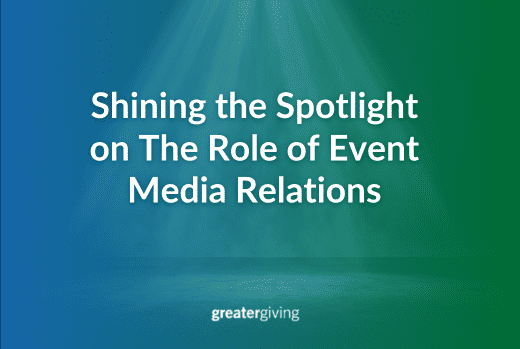
The Art of Event Promotion Through Media Relations
As an event organizer, one of your primary goals is to ensure that your event reaches its maximum potential in terms of attendance and impact. To achieve this, an often overlooked but crucial aspect is the role of Media Relations on your event committee. In this blog post, we will delve into the significance of Media Relations and the job description of the team responsible for this critical function.
The Power of Great PR
What are media relations? Media Relations, also known as Public Relations (PR), plays a pivotal role in getting the word out and generating excitement. In today’s digital age, having a strong media presence can significantly influence the success of an event. This special team acts as a bridge between the event committee and the media, ensuring that your event gains the attention it deserves.
Job Description of the Media Relations Team:
The Media Relations team is composed of individuals who possess a unique set of skills and expertise. Their primary responsibility is to promote the event through various media channels and engage with potential attendees, sponsors, and the public.
Here’s a comprehensive media relations definition of responsibilities:
- Strategic Event Promotion: The Media Relations team takes charge of formulating an effective and creative promotion strategy for the event. They work closely with the event committee to understand the key selling points of the event. They also create compelling narratives to capture media and audience interest.
- Collaboration with Media Sponsors: Media sponsors can significantly boost your event’s visibility. The Media Relations team is responsible for identifying potential media sponsors and collaborating with them to secure coverage in newspapers, magazines, radio, television, and digital media outlets.
- Press Release Creation: Crafting well-written and attention-grabbing press releases is a fundamental task for the Media Relations team. These press releases act as official announcements about the event, highlighting its unique aspects, guest speakers, activities, and any other newsworthy elements.
- Managing Multichannel Communication: Effective communication is key to successful media relations. The team manages various communication channels, including TV, print, web, email, and social media platforms. Each channel requires tailored content and engagement strategies to maximize outreach.
- Media Pitching and Follow-ups: The team actively pitches event stories, press releases, and exclusive interviews to media outlets. They follow up with journalists and editors to secure media coverage, whether through features, interviews, or event listings.
- Crisis Management: PR professionals are adept at handling crises and negative publicity effectively. They have contingency plans in place to address any issues that may arise during the event or its promotion.
- Social Media Management: In the digital era, social media is a powerful tool for event promotion. The Media Relations team leverages social platforms to create buzz, engage with the audience, and share event updates in real-time.
- Measuring Impact and ROI: The team analyzes media coverage and quantifies its impact on event attendance and overall success. They provide comprehensive reports to the event committee, demonstrating the return on investment (ROI) achieved through their efforts.
Media Relations hold the key to unlocking the full potential of your event
The team’s expertise in strategic event promotion, media collaboration, press release creation, and multichannel communication significantly impacts attendance and public perception. By entrusting this crucial role to skilled professionals your event can achieve greater visibility, success, and long-lasting positive effects.
Remember, your event is exceptional, and it deserves the spotlight. With a strong Media Relations team on your event committee, you can ensure that the world hears about it and eagerly attends to be a part of the experience.
